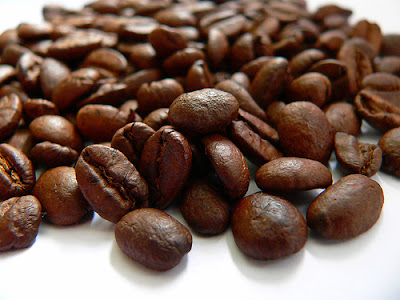Scientists continue to examine the benefits of the caffeine content of coffee. More recently, scientists in the United States claims that caffeine can help reduce the risk of one type of skin cancer called basal cell carcinoma. The findings are published in Cancer Research, a journal for the American Association for cancer research. In the study, researchers analyzed the data from Nurses Health Study, an long-term study that are meant to investigate factors that may affect health of women and Health Professionals Follow-up Study, for men.
The study involved nearly 113 000 participants. Researchers at Brigham and Women's Hospital and Harvard Medical School in Boston found that 22,786 participants were diagnosed with basal cell carcinoma during the 20-year period.
There is inverse relationship between drinking coffee and the the risk of cell carcinoma basal, but the increase intake of caffeine from various types of foods - such as tea, soda and chocolate - also showed a decrease risk of skin cancer.
"These findings really show that the caffeine in coffee is responsible for lowering the risk of basal cell carcinoma associated with increased consumption of coffee," said Jiali Han, a professor at Brigham and Women's Hospital, Harvard Medical School, Boston, who became principal investigator of the research .
"These results are consistent with previous research in mice, suggesting that caffeine may block the formation of skin tumors. However, further studies are needed using different population groups and additional mechanistic studies before we can definitively say this," he explained.
Basal cell carcinoma is a type of skin cancer is most common and usually do not metastasize, slow growing, locally invasive and cause destruction. The average age at risk of basal cell carcinoma is around 60 years and rarely occurs before the age of 40 years.
The study involved nearly 113 000 participants. Researchers at Brigham and Women's Hospital and Harvard Medical School in Boston found that 22,786 participants were diagnosed with basal cell carcinoma during the 20-year period.
There is inverse relationship between drinking coffee and the the risk of cell carcinoma basal, but the increase intake of caffeine from various types of foods - such as tea, soda and chocolate - also showed a decrease risk of skin cancer.
"These findings really show that the caffeine in coffee is responsible for lowering the risk of basal cell carcinoma associated with increased consumption of coffee," said Jiali Han, a professor at Brigham and Women's Hospital, Harvard Medical School, Boston, who became principal investigator of the research .
"These results are consistent with previous research in mice, suggesting that caffeine may block the formation of skin tumors. However, further studies are needed using different population groups and additional mechanistic studies before we can definitively say this," he explained.
Basal cell carcinoma is a type of skin cancer is most common and usually do not metastasize, slow growing, locally invasive and cause destruction. The average age at risk of basal cell carcinoma is around 60 years and rarely occurs before the age of 40 years.

No comments:
Post a Comment